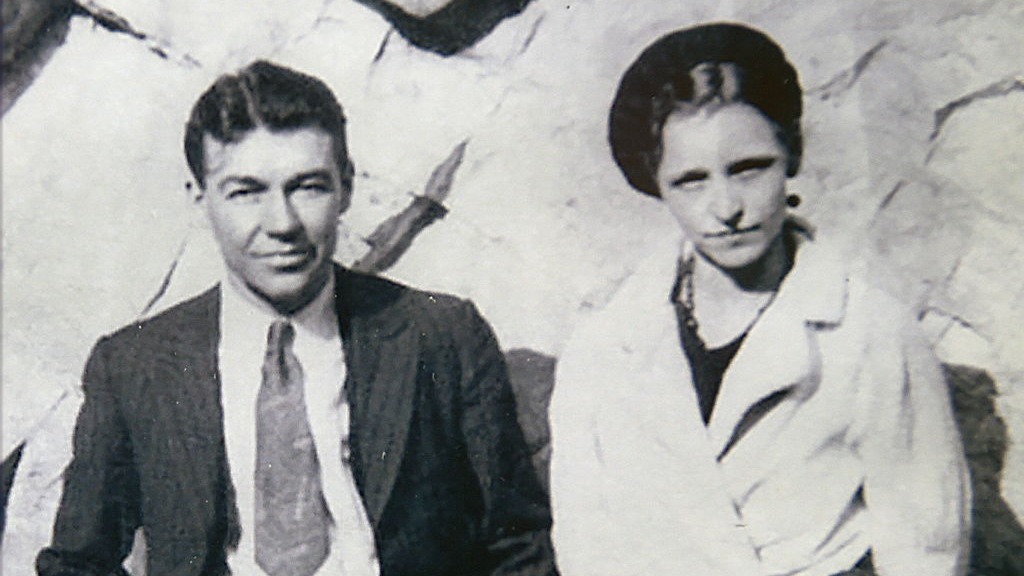23 May 1934: Bonnie and Clyde killed in ambush
Bonnie Parker and Clyde Barrow became infamous in the 1930s for robbing banks. But their notoriety ultimately proved their undoing.


Get the latest financial news, insights and expert analysis from our award-winning MoneyWeek team, to help you understand what really matters when it comes to your finances.
You are now subscribed
Your newsletter sign-up was successful
Want to add more newsletters?
The 1920s and 1930s saw a sharp rise in the number of bank robberies in the US. The growing number of bank branches presented an opportunity, while the widespread availability of cars offered a quick getaway, helped by the fact that state police forces still struggled to co-operate on cross-border crimes with each other.
The Great Depression had left many people feeling more sympathy for robbers than bankers, and many became celebrities.
But thanks to photos of them posing with stolen weapons discovered by police Bonnie Parker and Clyde Barrow became the most infamous of all.
Try 6 free issues of MoneyWeek today
Get unparalleled financial insight, analysis and expert opinion you can profit from.

Sign up to Money Morning
Don't miss the latest investment and personal finances news, market analysis, plus money-saving tips with our free twice-daily newsletter
Don't miss the latest investment and personal finances news, market analysis, plus money-saving tips with our free twice-daily newsletter
Their gang embarked on a crime spree between 1932 and 1934. After targeting stores and gas stations, they graduated to banks. It's generally agreed that they robbed at least a dozen. But their notoriety proved their undoing.
The rapidly-growing Federal Bureau of Investigation got involved in the police hunt after the couple stole a car, increasing the resources dedicated to tracking them down. And the alleged cold-blooded execution of two police officers on Easter Sunday (they killed 13 people in total) turned national opinion against them.
The authorities offered a reward of $2,000 ($35,310 at 2014 prices) for their death or capture, and shortly after, they were killed in an ambush.
The number of bank robberies grew after World War II, peaking at around 9,000 a year in the mid-1990s.
However, over the past few decades, they have become far less frequent thanks to new anti-theft technology, tougher sentences and the rise of online banking. In Britain, bank raids slid from 847 in 1992 to just 66 in 2011, and under 60 on average across the country now.
Get the latest financial news, insights and expert analysis from our award-winning MoneyWeek team, to help you understand what really matters when it comes to your finances.

-
 Review: Pierre & Vacances – affordable luxury in iconic Flaine
Review: Pierre & Vacances – affordable luxury in iconic FlaineSnow-sure and steeped in rich architectural heritage, Flaine is a unique ski resort which offers something for all of the family.
-
 Could you get cheaper loans under ‘significant’ FCA credit proposals?
Could you get cheaper loans under ‘significant’ FCA credit proposals?The Financial Conduct Authority has launched a consultation which could lead to better access to credit for consumers and increase competition across the market, according to experts.
-
 13 April 1960: the first satellite navigation system is launched
13 April 1960: the first satellite navigation system is launchedFeatures On this day in 1960, Nasa sent the Transit 1B satellite into orbit to provide positioning for the US Navy’s fleet of Polaris ballistic missile submarines.
-
 9 April 1838: National Gallery opens in Trafalgar Square
9 April 1838: National Gallery opens in Trafalgar SquareFeatures On this day in 1838, William Wilkins’ new National Gallery building in Trafalgar Square opened to the public.
-
3 March 1962: British Antarctic Territory is created
Features On this day in 1962, Britain formed the British Antarctic Territory administered from the Falkland Islands.
-
10 March 2000: the dotcom bubble peaks
Features Tech mania fanned by the dawning of the internet age inflated the dotcom bubble to maximum extent, on this day in 2000.
-
9 March 1776: Adam Smith publishes 'The Wealth of Nations'
Features On this day in 1776, Adam Smith, the “father of modern economics”, published his hugely influential book The Wealth of Nations.
-
 8 March 1817: the New York Stock Exchange is formed
8 March 1817: the New York Stock Exchange is formedFeatures On this day in 1817, a group of brokers moved out of a New York coffee house to form what would become the biggest stock exchange in the world.
-
7 March 1969: Queen Elizabeth II officially opens the Victoria Line
Features On this day in 1969, Queen Elizabeth II took only her second trip on the tube to officially open the underground’s newest line – the Victoria Line.
-
4 March 1519: Hernan Cortes arrives in Mexico
Features On this day in 1519, Hernan Cortes landed in Mexico before marching on the Aztec capital, Tenochtitlan.